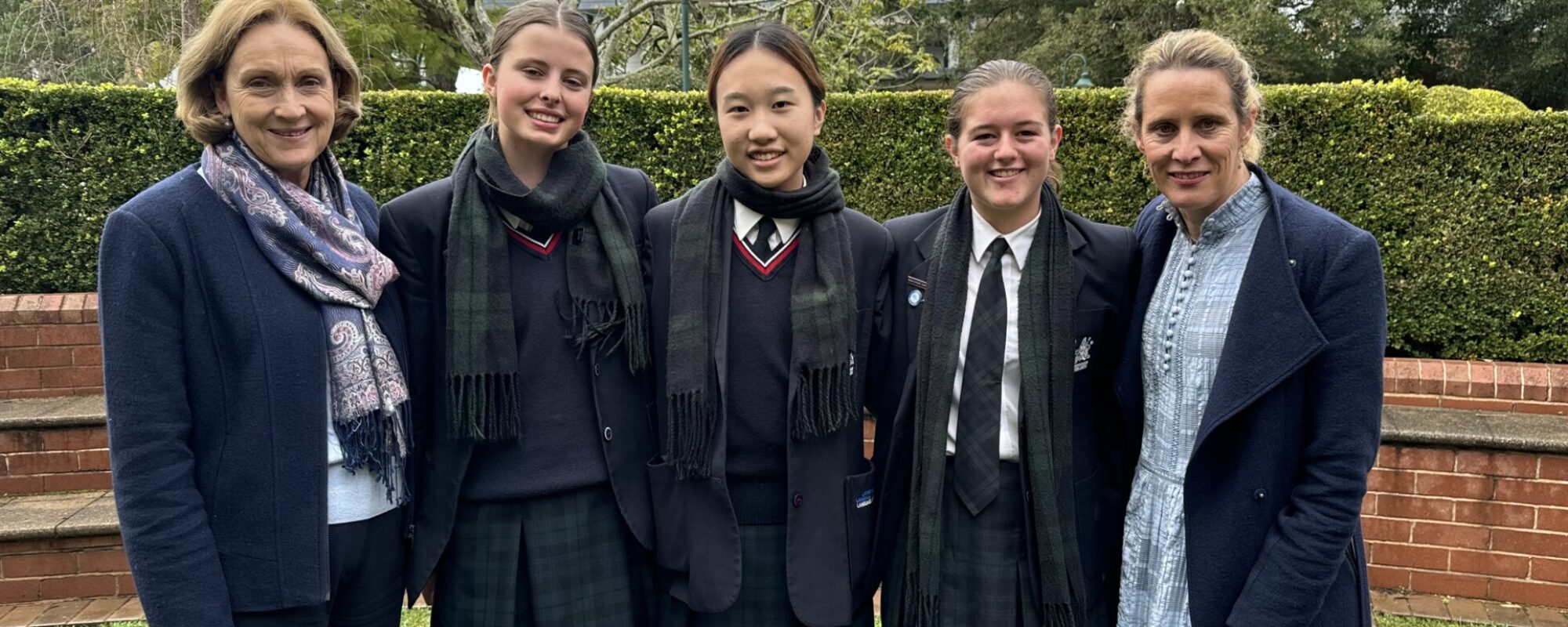From the Upper School
A message from Mrs Victoria Harrison, Head of Upper School
On Tuesday evening, it was lovely to host the parents of our current Residential Program students at the Rites of Passage Parent Workshop facilitated by Dr Arne Rubenstein. The intent of this evening is to help parents understand their daughters’ developmental stages and the cultural significance of rites of passage, which is intricately linked to our Vision Valley Residential program.
This program aims to help our girls develop a stronger understanding of who they are and where they fit in the world, foster respectful relationships with others, and cultivate a greater appreciation of the natural environment around them. The parent workshop builds on the independence nurtured by the program and creates a supportive community where parents can share experiences and insights. It emphasises the role of parents in navigating these transitions and offers practical advice on preparing their daughters for these important rites of passage.
Additionally, the evening provided a space for parents to ask questions and discuss their daughters’ growth, equipping them with the knowledge and tools needed to support their daughters during these significant life transitions. We are very grateful to the parents of our Vision Valley adventurers for supporting this initiative and the positive feedback we received about the event. We are looking forward to welcoming the girls back in Week 6.
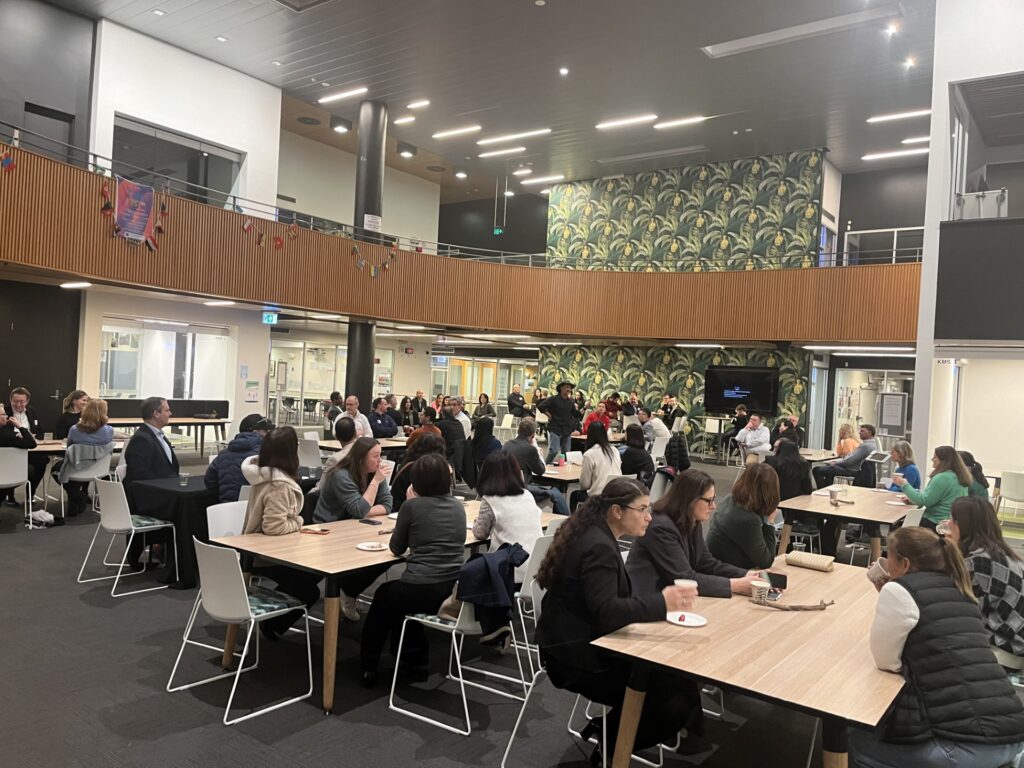
In the Upper School, we have a commitment to providing opportunities for the girls to experience the world beyond Pymble and the chance to be of service to others. Last week Ellie Pointon, Sienna Melton, Jaidey Samuelsson and Evie Farr attended the Goodooga Games. Thank you to Sienna for this reflection:
Last week, together with a handful of other Pymble students, I travelled to regional NSW to attend the annual Indigenous Games at Goodooga. At the start of the week, we travelled from Sydney to Lightning Ridge – home of the famous black opal – and stayed there for two nights. We took a day trip to Brewarrina, where we met with a local Elder from the community.
He explained to us the significance of the heritage listed Brewarrina Aboriginal fish traps. We learnt about how they came to be, how they worked and why they are still important landmarks. For the remainder of the trip, we stayed in Goodooga, which is a small town located 20 kilometres south of the QLD border. While staying at Goodooga, we enjoyed a relaxing swim in the hot spring bore baths and attended the Indigenous Games held at the local school.
We saw many students from various schools across the region compete in a series of traditional Indigenous games. Our Pymble students had a lot of fun participating in the games and helping out the younger kids. At the conclusion of the games, we started the long journey back to Sydney with a night stopover in Dubbo.
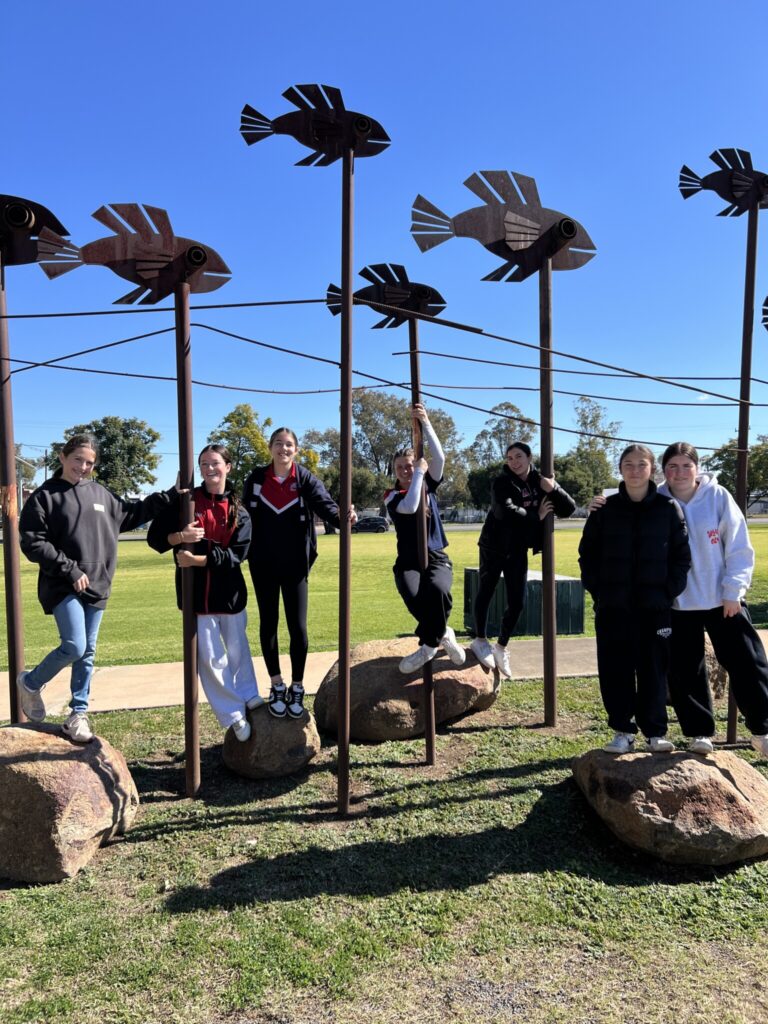
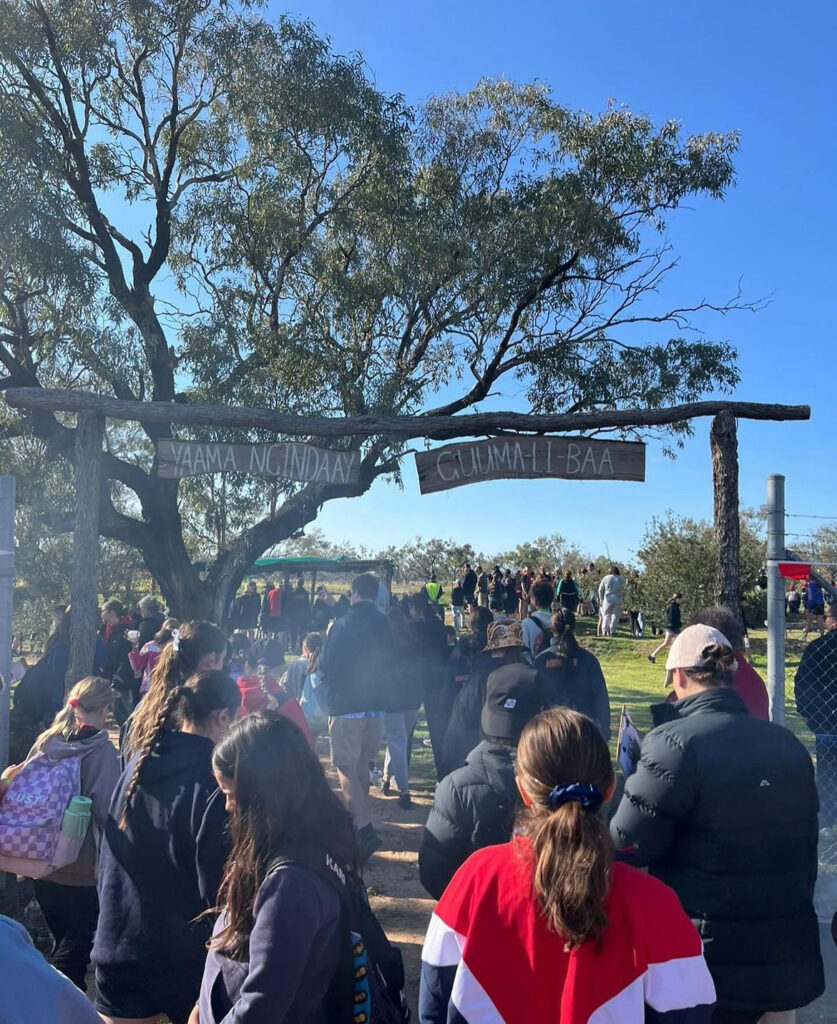
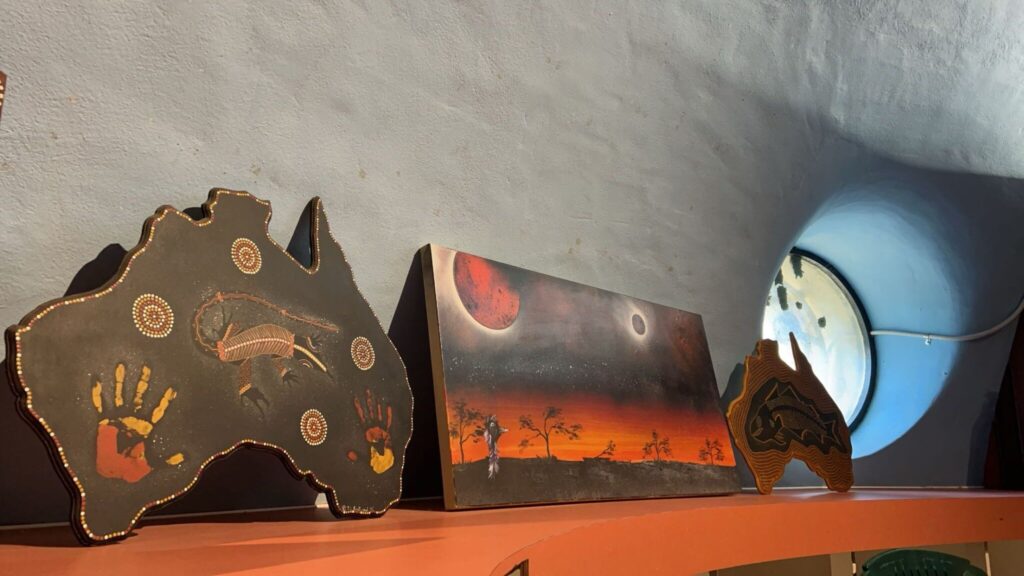
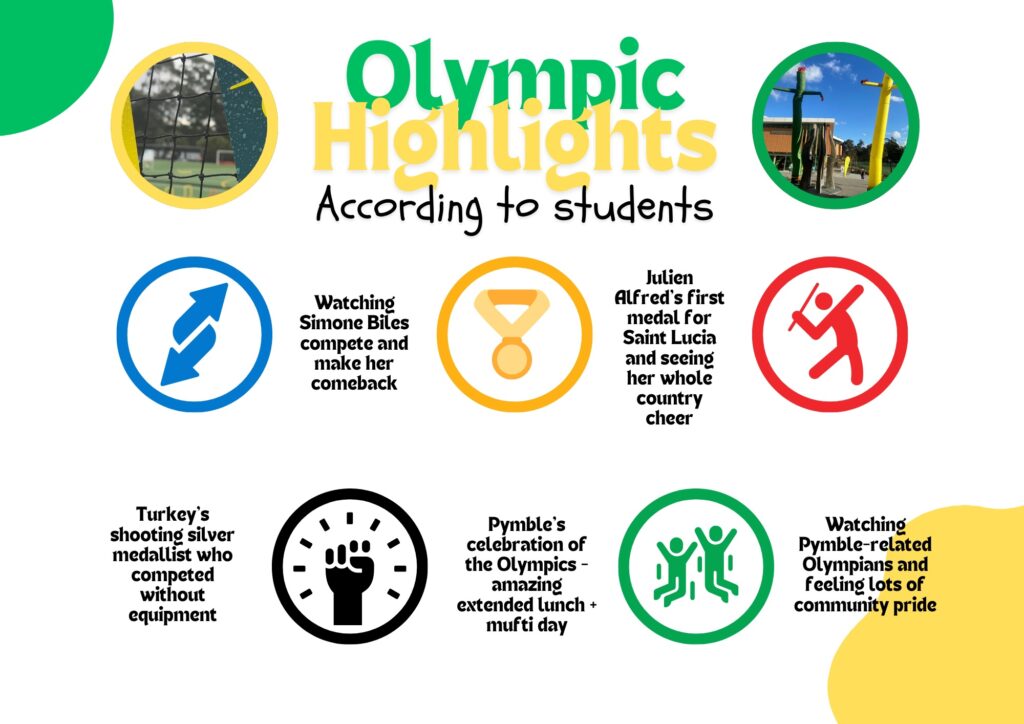
It has been a very busy week for Year 10. The girls have been involved in a range of activities including the Knox-Pymble Social Cup on Thursday afternoon, the RYDA excursion, as well as Write a Book in a Day and the Patricia Burgoyne Speaking Competition. Well done to all involved. We will share more about RYDA next week.
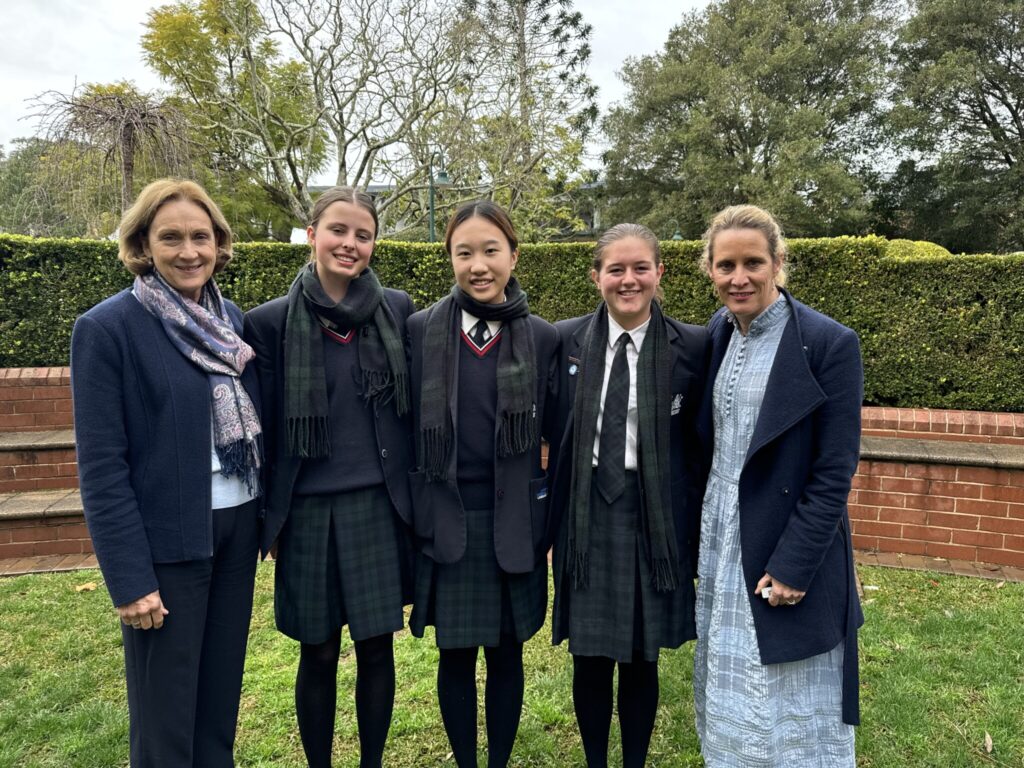
Here are two reflections on Write a Book in a Day by Cindy and Jocelyn (Year 10):
“Write a Book in a Day is an initiative for high school students from years 7 to 11 and is separated into two levels: middle and upper school. It is an organisation that raises money for child cancer research and gives these written stories to kids in hospitals to read.
We came into school early at 8.00am and stayed at school until 5.00pm to finish the book. We had two illustrators on our team and the rest were writers. We finished writing the book fairly early but since there weren’t many illustrators, it took a while for all the drawings to be coloured and finished. Overall, it was an amazing experience for a good cause, and I recommend more students participate in this initiative next year.”
Written by Cindy Xu
“Participating in Write a Book in a Day was a really enjoyable and meaningful experience, where everyone in the team collaboratively worked together, applying both writing and illustration skills to create a picture book to support children with cancer.”
Written by Jocelyn Ying
The Patricia Burgoyne Speaking Competition
Every year, the Pymble English Department runs the Patricia Burgoyne Public Speaking Competition. Patricia Burgoyne was the Head of English many years ago (1966) and later went on to be Deputy Principal of the College in 1970. She felt passionate about the need for the girls of her time to have a voice in the outside community. Mrs Burgoyne began the speaking competition in 1991 as a way to empower the girls to find a voice of their own. We think it is important to honour her mission.
The competition continues in Year 10 English. Congratulations to the ten students who were part of the competition this week: Jenny Xu, Macy Sun, Sara Joung- Nguyen, Thyra Schuszler, Ann Kyle, Maria Yang, Amelia Brandon, Grace Beck, Addison Seeto and Sophie Lin. The students delivered engaging and thoughtfully articulated presentations about the importance of hope, optimism, and curiosity.
Congratulations to Jenny Xu, the winner of the competition for 2024, who considered the importance of identity, culture, and history as elements that shape us as individuals. Congratulations also to the runners-up, Amelia Brandon and Grace Beck.
Jenny’s speech appears below:
What’s in a name?
Recently, my older cousin became pregnant with a little boy, and I was tasked with helping to find names for the baby. We considered Austin, James, and about a million variants of William, but nothing seemed to fit perfectly. My parents, on the other hand, were tasked with finding the baby a Chinese name, yet all of the options they had brainstormed were also rejected by my cousin. Because according to her, there is no greater regret than picking the ‘wrong’ name for your child. A name they’ll have to shrivel and wither away with for the rest of their life.
This got me thinking about the purpose of our names. When most parents name their children, they’re looking for something symbolic or something pretty that rolls off the tongue. But names are also a signifier of identity, culture and history – something that ties us to the past, and something that can shape our experiences in the present.
So, given that names are so important, why do people ever change their names? Aside from those wishing to hide their history as an international super spy, data collected by a variety of sociologists seems to suggest that the vast majority of people who alter their names are immigrants, and people of colour. These alterations usually occur in three ways – erasing, shortening and anglicising.
For many immigrants who fear missing out on opportunities, changing their name gives them a better chance at cultural assimilation and economic mobility and reduces their chances of discrimination. Even when it comes at a cost to their personal and cultural identity. In the same way that if a product has a better name, there’s a higher chance that a consumer will remember it, or want to buy it, unconscious bias means that ‘unfamiliar’ or ‘ethnic’ names are less likely to be remembered when listed on a CV.
But immigrants and people of colour shouldn’t have to change or erase elements of their identity just to save someone the thirty seconds it takes to learn and remember a name. I’ve come to regret how during the process of immigration, my name was anglicised, because it led me to feel disconnected from my culture and history as someone of a Chinese background. There is no way to phoneticise the letters x and u in English, yet the word is also no longer Chinese, distorted and adapted to fit the limitations of a foreign language.
Once a character, rich with meaning, now anglicised and reduced to two simple letters that are essentially nonsense. I’m immensely privileged to go to a school that is extremely aware and appreciative of cultural identity, and there are people who have to grapple with the prospect of far greater regrets than what name to put on their Year 12 jersey. But they’re regrets, nonetheless. And it’s not names, or the cultural connotations that come with them, that are the enemy, but rather the lack of willingness for society to learn or remember them.
And so, it’s that willingness, and not the names themselves, that needs to change.
Written by Jenny Xu (Year 10)
Important Dates
Term 3
Thursday 15 August – Year 10 Pymble/Knox Social Cup (3 Thursday afternoons)
Thursday 22 August – Year 10 Pymble/Knox Social Cup (3 Thursday afternoons)
Thursday 22 August – igsa Track and Field Heats
Friday 23 August – IGSA Track and Field Championships at Homebush
Friday 23 August – Year 9 Residential Program – End of Program Celebration
Monday 26 August – Year 10 girls attending St Edmund’s AIM Initiative
Friday 30 August – Year 9 Subject Selection presentation and Launch of Leadership for 2025
Friday 30 August – Year 10 Pymble/Shore Focus group meeting
Victoria Harrison
Head of Upper School

